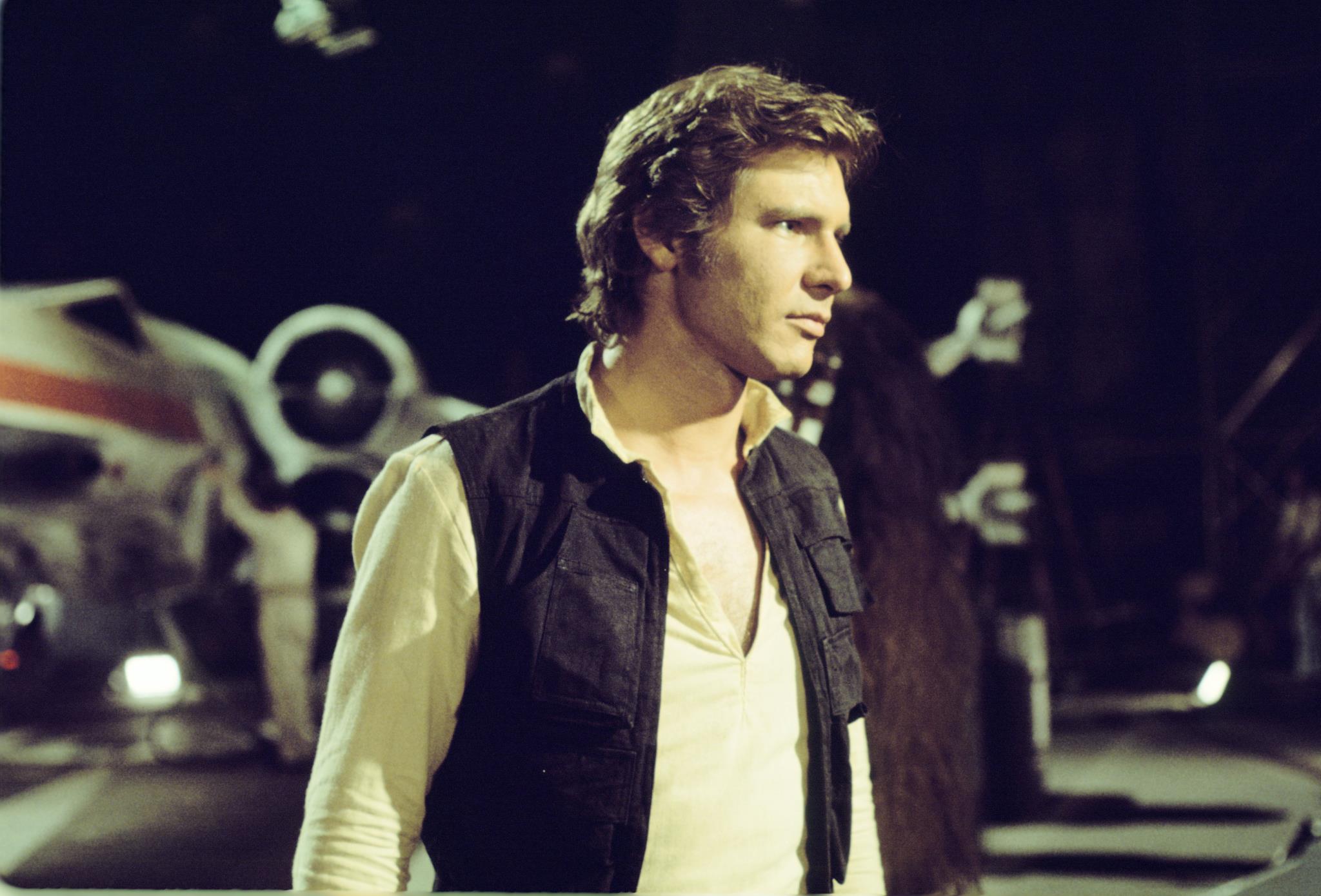The Han Solo movie proves that prequels are the worst
Ban prequels!


A free daily email with the biggest news stories of the day – and the best features from TheWeek.com
You are now subscribed
Your newsletter sign-up was successful
There's no such thing as "too soon" in Hollywood. With J.J. Abrams's feverishly anticipated sequel Star Wars: Episode VII — The Force Awakens still five months away, Lucasfilm confirmed July 7 that yet another Star Wars movie is in development, with LEGO Movie duo Phil Lord and Christopher Miller at the helm. The latest extension will focus on Han Solo's pre-New Hope exploits, joining Gareth Edwards's Rogue One and the long-rumored Boba Fett spin-off as part of an ambitious "anthology" series of standalone films set in the galaxy far, far away.
In theory, a movie centered on Han Solo sounds like a no-brainer. The charming smuggler originally played by Harrison Ford may be the most beloved character in the franchise. Why not explore the pivotal moments of his past only hinted at in the original trilogy: his first meeting with Chewbacca, the Sabacc tournament in which he won the Millennium Falcon from his future frenemy Lando Calrissian, and the Kessel Run he famously completed in less than 12 parsecs?
Well, that's the problem: We're already so familiar with Han Solo that it's easy to predict those scenes. As a cinematic universe, Star Wars is arguably unrivaled in its scope and mythological intricacy. With a whole galaxy and millenniums of history to explore, what's the point of rehashing something we already know? It's like living in a giant castle and only ever going into one room.
The Week
Escape your echo chamber. Get the facts behind the news, plus analysis from multiple perspectives.

Sign up for The Week's Free Newsletters
From our morning news briefing to a weekly Good News Newsletter, get the best of The Week delivered directly to your inbox.
From our morning news briefing to a weekly Good News Newsletter, get the best of The Week delivered directly to your inbox.
The day the Han Solo movie was announced, Huffington Post TV critic Maureen Ryan shrewdly observed that Hollywood only likes the beginnings of things. Minions, a prequel to Despicable Me, sits atop the box office, and in October, Joe Wright's Pan will recount how the titular Boy Who Wouldn't Grow Up arrived in Neverland. Of all the tactics Hollywood deploys to squeeze extra cash from its franchises, prequels might be the most irksome, because they seldom contribute anything valuable to the existing material; much of the time, they even detract from what made the original great.
By nature, prequels inhibit forward momentum. They chart territory already implied, if not explicitly explored, by the original installment instead of breaking new ground, and limit the directions in which a new story can go. Take Fox's freshman TV series Gotham, a prequel set when Bruce Wayne is still a child. We know beforehand that hero Jim Gordon's quest to rid the city of crime is doomed. Otherwise there would be no need for Bruce Wayne to become Batman. It's not impossible to create drama out of an ending the audience knows already — see All the President's Men, Titanic, or any Shakespeare tragedy — but it does deprive storytellers of some useful tools.
Many prequels are framed as "origin stories," intended to fill in the gaps of a character's history and provide context for later behavior. In lieu of fresh plot or genuine suspense, they trade on audience devotion, scattering winking references and inside jokes — There's young Harvey Dent! There's Wolverine! — hoping no one will notice that nothing truly compelling is actually happening. Yet even as elaborate fan service, prequels rarely satisfy. Let's face it: However enticing it might sound, you don't really want to see Han Solo as a money-grubbing pirate, not any more than you wanted to see Anakin Skywalker as a mopey kid. There's a reason we were introduced to Han Solo in Star Wars; not only is what he did before Star Wars unimportant to the series' overarching narrative, but it's also less interesting than anything he did before he teamed up with Luke.
We don't need to know every minute detail of a character's background to find them well-rounded or entertaining. In fact, it often has the opposite effect, sapping characters of their initial allure. Some of Hollywood's best characters are the ones we know the least about.
A free daily email with the biggest news stories of the day – and the best features from TheWeek.com
To wit: The best onscreen depiction of the Joker is in 2008's The Dark Knight. Heath Ledger's chilling performance aside, what elevates the character is his elusiveness. We never learn why he does the things he does, or how he developed his philosophy, or even what his real name is. He's not a person as much as the shadow of one, a living nightmare, which makes him an ideal fit for a movie that operates less as a coherent narrative than a morality play. It also makes him scary as hell, suggesting that normal human things like logic and emotion don't apply to him.
The same could be said about many all-time classic villains: They're intimidating precisely because we can't understand them. Nearly 25 years after its release, The Silence of the Lambs remains the definitive portrait of Hannibal Lecter, inviting us to see him the way Clarice does: a charismatic, hyper-intellectual riddle. The prequel movies Red Dragon and Hannibal Rising only diminished his power by delving into his past. And it goes without saying that Darth Vader is far more compelling as a black mask with a booming voice then as the scowling, angst-ridden wet blanket he was revealed to be in the Star Wars prequels. You don't want to hear about these villains' childhood traumas; that would mean they have souls.
It goes for heroes, too — ambiguity can make them feel more human. When fiction attempts to explain, say, a character's deep-seated brutality by showing that he was abused as a child, it rings false. The inner life the audience imagines for a character is often richer than what's on screen. One of the myriad reasons Mad Max: Fury Road's Imperator Furiosa was so captivating to watch is because the movie spared us the indignity of simplistic motivations like romance, family, or past sexual violence, trusting viewers to sympathize with her simply for being a person.
Prequels amount to little more than extended exposition — what you slog through to get to the good stuff. Which is, of course, why Hollywood adores them. They allow backstory to be disguised as story, and action to be disguised as character growth. It makes business sense to wring as much money as possible from popular franchises. But it makes almost no artistic sense. If Hollywood values creativity and storytelling at all, it will soon realize that some things are better left unsaid.
Amy Woolsey is a freelance writer who recently graduated from George Mason University in Fairfax, Virginia. Her writing has appeared in the Mason student newspaper, Fourth Estate, and Bitch Flicks, a feminist pop culture website. She blogs about film and TV at theauramusings.wordpress.com.
-
 Political cartoons for February 21
Political cartoons for February 21Cartoons Saturday’s political cartoons include consequences, secrets, and more
-
 Crisis in Cuba: a ‘golden opportunity’ for Washington?
Crisis in Cuba: a ‘golden opportunity’ for Washington?Talking Point The Trump administration is applying the pressure, and with Latin America swinging to the right, Havana is becoming more ‘politically isolated’
-
 5 thoroughly redacted cartoons about Pam Bondi protecting predators
5 thoroughly redacted cartoons about Pam Bondi protecting predatorsCartoons Artists take on the real victim, types of protection, and more
